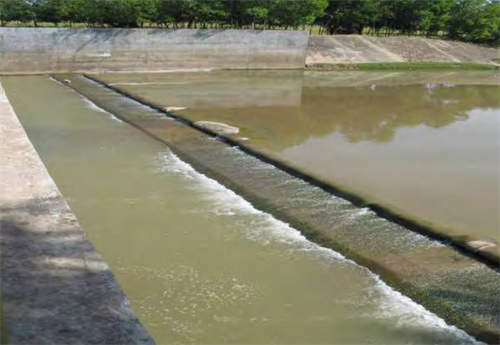Hydraulic lifting dam has been widely used in various small and medium-sized rivers. It is a new type of water conservancy equipment. Compared with traditional gate dams, it has the advantages of low cost, easy maintenance and simple operation. Of course, the structure of the supporting pier is simple but not simple. Whether it is reliable in structure or performance, it is an advantage of hydraulic lifting dam.
During the normal work of water retaining and flood control, the fixed support rods of the hydraulic lifting dam have a very large supporting effect. The main pressure in this situation comes from the weight of the gate dam itself and the pressure in the water. Therefore, the key to support lies in the locking device. To prevent the interlocking problem of the dam system, it is controlled by an independent hydraulic system. However, once the pipeline of the hydraulic cylinder is complicated or unreasonable, it is easy to get stuck, so we need to pay attention to this aspect.
In this regard, maintenance is needed. In fact, the maintenance of water conservancy equipment is very important. Some hydraulic lifting can be unmanned, but in daily maintenance, we should take the responsibility of inspection and supervision to ensure the normal operation of the equipment. At present, the hydraulic cylinder components of hydraulic dams are basically set at the bottom of the energy dissipation pool, and all the oil pipes are also here. After operation, there will be water accumulation at this position, so maintenance must be done.

At present, hydraulic lifting dams are used in various regions very frequently, and no problems have occurred. This is due to its good structural reliability and the technical accumulation in the process of design and construction that we have been adapting to local conditions over the years. The safety of related products of hydraulic dams has been greatly improved. Although the operation of hydraulic lifting dams is simple, daily maintenance is an indispensable task and needs to be taken seriously.
Hydraulic Elevator dams are relatively simple movable dam technologies in water conservancy technology, but simple is not simple. It cleverly adopts the mechanical principles of dump trucks and combines the hydraulic structure type of pier dams. It is a new and reliable water conservancy technology. It has now been widely used in agricultural irrigation, ship locks, flood control, urban river landscapes and small and medium-sized hydropower stations. The advantages are very obvious compared to traditional dams. It can automatically release the dam like a flap gate dam and it is better to cling to the riverbed without blocking water like a rubber dam.
The hydraulic lifting dam has the functions of water retaining and flood discharge. Its structure is composed of an arc dam surface, a support rod, a hydraulic rod, a hydraulic cylinder and a hydraulic pump station. The hydraulic cylinder directly pushes the back of the movable water retaining dam surface to realize the function of raising the dam to retain water and lowering the dam to discharge flood. The back is the back of the movable dam surface supported by the support rod, forming a stable supporting pier dam. A manual push rod switch is used to control the hydraulic system and manually operate the lifting and lowering of the movable dam surface. It can also be combined with the PLC only control center and the buoy sensing device to achieve intelligent management and unmanned management. In addition, the height of the movable water retaining is generally about 3 meters, and the width is not easy to exceed 50 meters due to the pressure loss of the hydraulic pipeline. It can be used in riverbeds with flat, non-serious siltation and small sedimentation geological conditions, and is basically not affected by floating objects, and has a wide range of use conditions. Moreover, both intelligent management and manual operation are simple and easy, and the cost of maintenance and management is low. Hydraulic lifting dams are used in the management of small rivers in some cities, and they can also be adjusted according to the water conditions to form waterfall landscapes and add to the city's style.

Comments
0